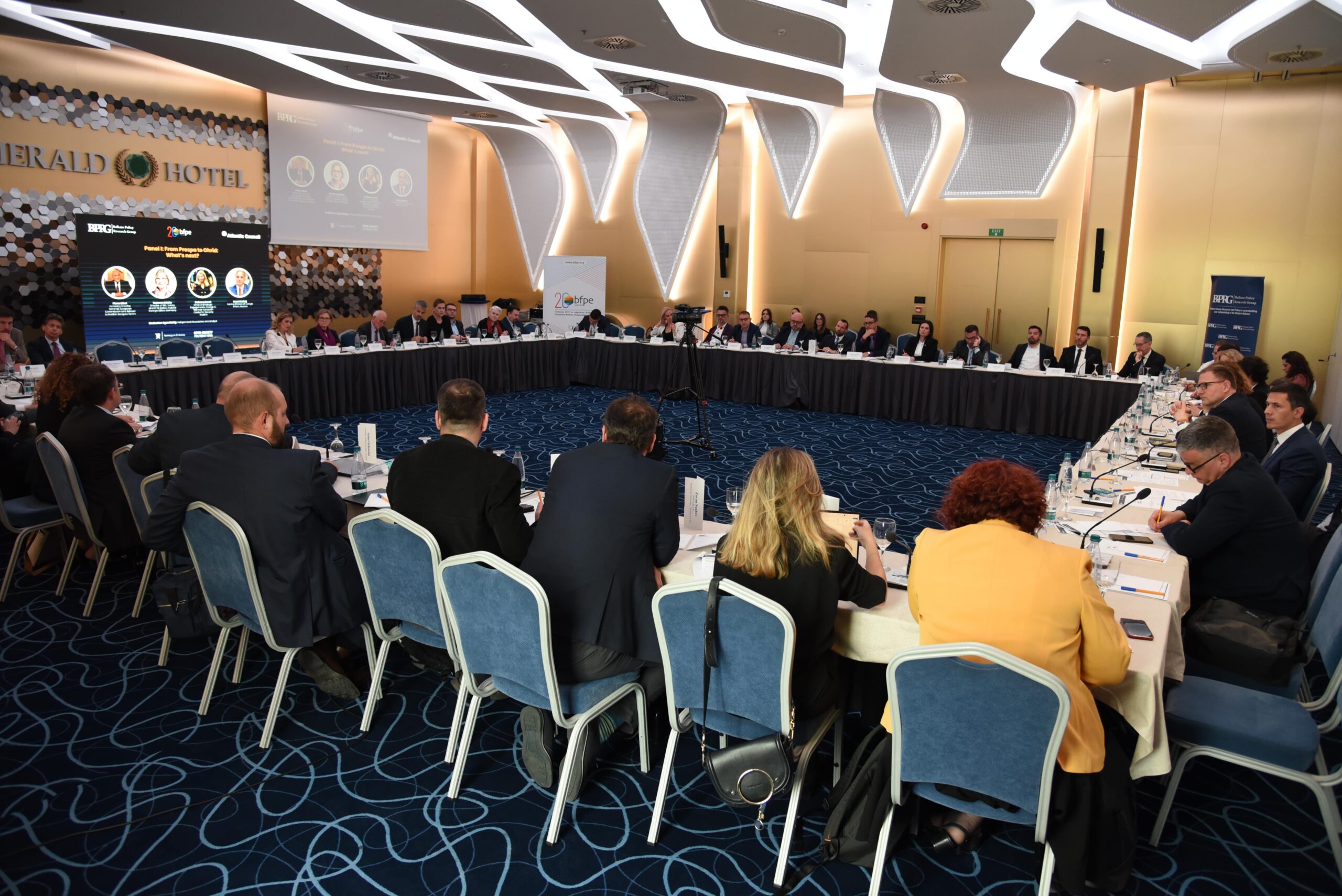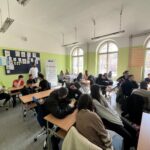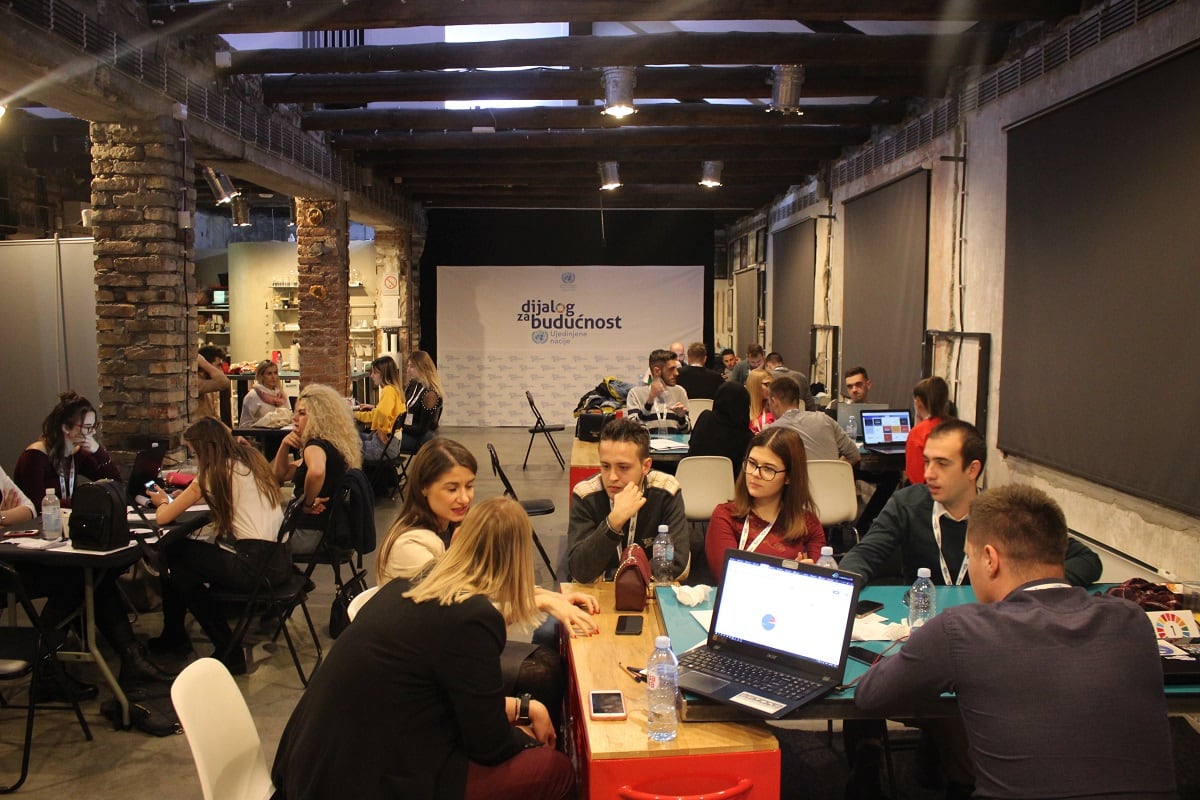
The second edition of the hackathon Dialogue for the Future organized in the framework of the Dialogue for the Future project took place from December 5 to December 8 at the Marsh Open Space.
After 25 young developers, designers, activists from Bosnia and Herzegovina, Montenegro and Serbia were selected, the group of young people gathered to work together in order to find and create innovative solutions on different topics, with the aim of enhancing dialogue and social cohesion in the three countries.
Project Coordinator Svetlana Stefanovic welcomed the participants, presented the project results to date and proposals for improving social cohesion that came out during the work at the National Dialogue Platform and the Regional Dialogue Platform. She also announced some of the future activities on the Dialogue for the Future project and officially opened Hackathon. She emphasised the importance of teamwork and the exchange of ideas, as well as the creative approach to solving the challenges we face on a daily basis. She encouraged the participants to seek support, strengthen and empower their networks so that they could work together in the future and to promote social cohesion between the three countries.
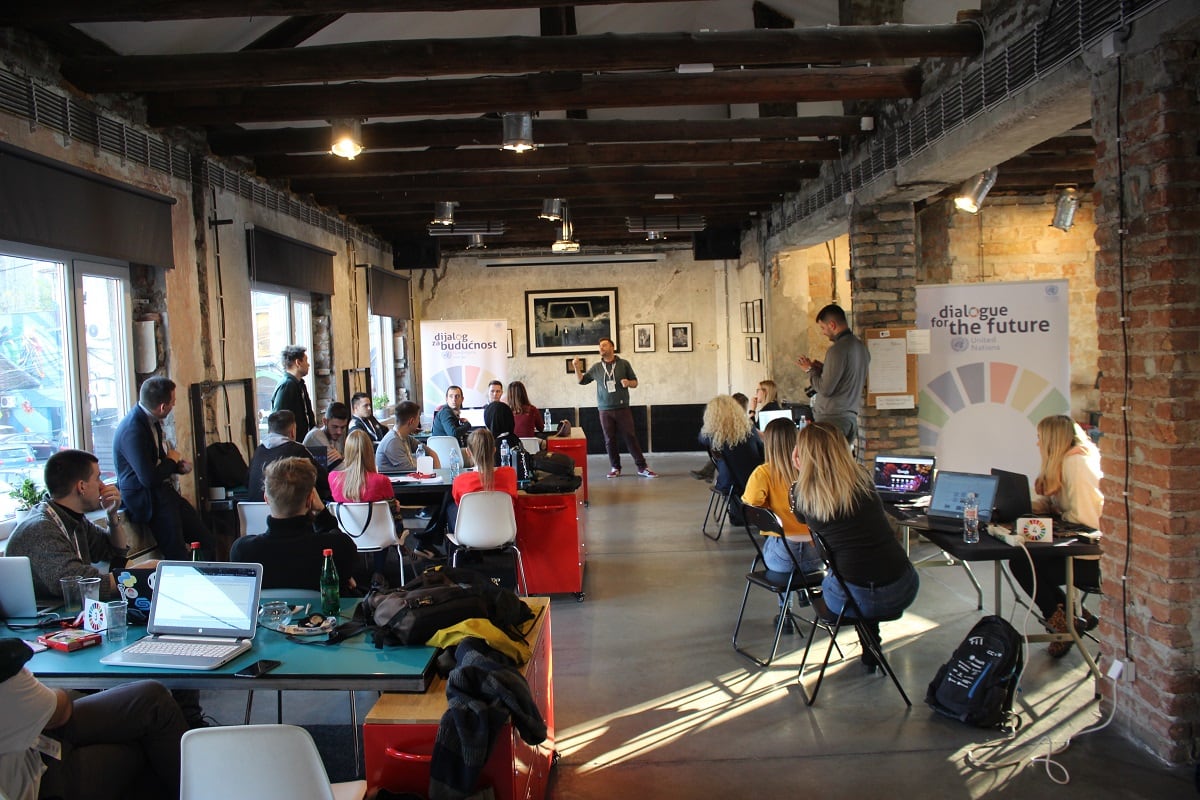
The working part of hackathon began with the mutual acquaintance of all participants, selected already as a team or as individuals, and continued with the introduction of Hackathon rules and mentors. During this part it was specified what is expected of them in the future as well as what to look for when choosing ideas to work on.
The selected teams had the support of mentor whole time during hackathon, Maša Milutinović and Uroš Krčadinac from Serbia, Fedja Kulenović from Bosnia and Herzegovina and Ivan Radunović from Montenegro.
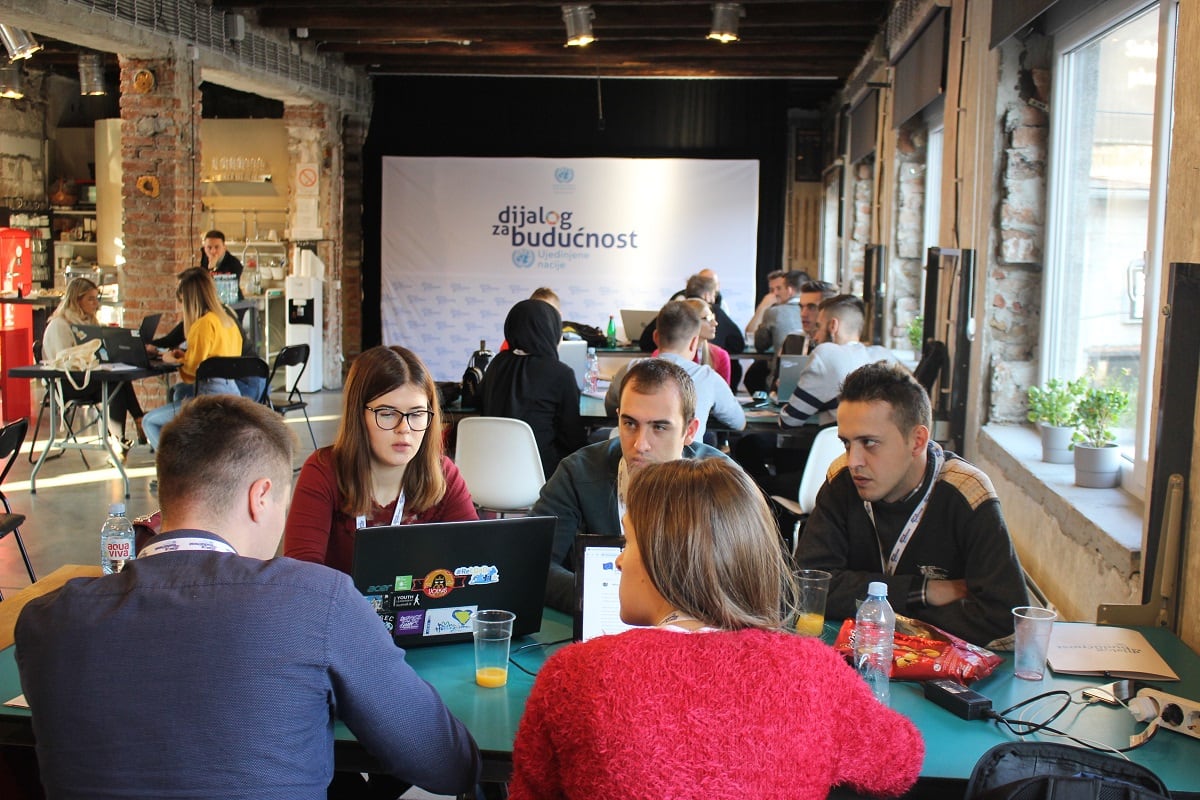
Participants were given the necessary information on all the steps needed to come up with the idea in order to come up with specific solutions and products, digital content (web or mobile applications, search engines, browser add-ons, social networking solutions…) or part of an activity or campaign involving the use of digital technology.
In the first hours of hackathons, selected teams worked together and with the support of their mentors to design and refine ideas that could translate into concrete action. With the help of mentors, they were slowly able to crystallize in what direction they would like their joint activity to take place, and depending on the problems identified, their affinities and interests.
After two days of work, each of the teams was able to translate their initial idea into concrete action and devise ways to translate their idea into reality.
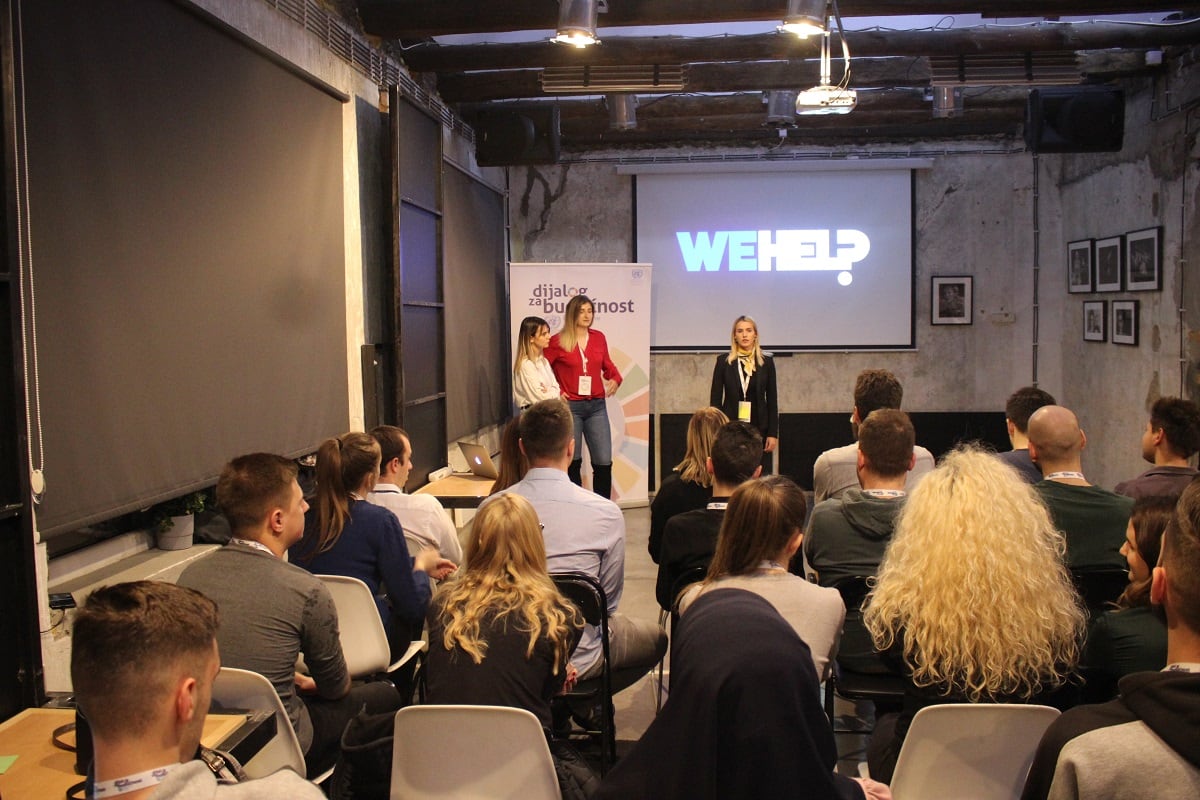
The first MODEV team worked on a solution that addressed the problems of peer violence and those who faced it, and designed a “We Help” application with help that could share their experiences (anonymously or publicly), seek help from a psychologist / scholars and the aim is to address the needs of young people and to encourage those who are facing peer violence.
The second TEAM NOOBS team has devised an innovative solution in the form of a ,,Dehackify’’ application that would handle order retrieval on social networks and offer a variety of tutorials and information about steps you take if someone is hacking your account.
The third NOOBS team was basically concerned with solidarity and how to help each other on a daily basis. They designed the ‘’Imam C’oeka’’ app that would connect people from all three countries through the provision and seeking of different services, from shared learning to concrete activities.
The AIESEC SQUAD team has designed a unique platform and application “Volonterija” that aims to bring organizations and volunteers from all three countries together in accordance with the need for volunteering in different fields and thus encourage youth activism to become involved and contribute in achieving social cohesion.
SLATKA KUCE is the last team that worked on an online campaign and a unique “teskoe.online” platform that would resemble certain activist events that have taken place in the region in the past and they would in a unique way, through memes and artist involvement, motivate citizens, especially young people to activate and contribute to solving the challenges individuals face.
Participants presented their ideas to a jury consisting of Marsh Open Space representatives, mentors and members of the project team. The jury members had a difficult task ahead of them, but in the end the Volonterija solution was chosen as the best, and the hackathon participants chose the We Help solution as ‘’audience winner’’. Both teams and their solutions will be given the opportunity to start implementing their solutions with the support of the mentoring and project team.
Joint Regional program “Dialogue for the Future: Fostering Dialogue and Social Cohesion in Bosnia and Herzegovina, Montenegro and Serbia”, is implemented by UNDP, UNICEF and UNESCO, financed by the UN Peacebuilding Fund (UN PBF).



